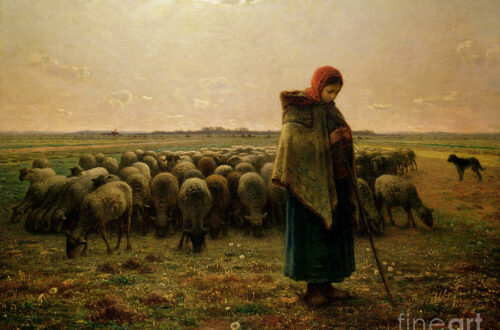Silenced Anger
The family culture I grew up in allowed anger. We were allowed to feel frustration and anger and even express it in both healthy and unhealthy ways. Our anger was more often than not a self-righteous anger rather than a righteous but nonetheless, the emotion was allowed. Some might look into our home and think we needed to be more self-controlled and less passionate. Some might think we hated each other because of how vocal or expressive we were.
We were actually just the opposite – we loved each other and still do. We are even incredibly vocal and expressive to this day. Whether our anger was then acted on, rightly or not, we always knew we were forgiven and accepted in our home.
This was in stark contrast to much of the Christian culture that I found outside of my home. I found the value of self-control to be taken to the point where anger in and of itself was considered sin. Anger was not an emotion to express but to be contained – even silenced. Anger was wrong, anger was sin and no good could come from passion and the high emotion of anger.
This has all been stirring in me as I am a high emotion person yet most who know me would never believe it. I have learned the value and necessity of handling emotions (and am still learning) yet believe I somehow bought into the belief that the emotion of anger is not Christian, therefore I silenced it. I believed that anger is not gracious and as a Christian, I always needed to be gracious. Anger is not allowed.
Then a friend from my seminary years quoted St. Augustine on Facebook saying,
“Hope has two beautiful daughters: their names are anger and courage. Anger that things are the way they are. Courage to make them the way they ought to be.”
Anger and courage connected to Hope. I had never made this connection and I am a hope junkie. So when I saw anger and courage tied to it, I was immediately pulled in.
Anger responds to the fact that things are not the way they should be. Pain, death, destruction, injustice, exploitation, neglect, abuse, pride … these are all present realities that should make us angry. Oh yes, anger is allowed. An anger for God’s goodness, for wholeness, against sin and the consequences of it. These are realities that should remind us that things are not as they should be and a longing for things to be made right and new. Anger sees reality and hope requires reality.
Hope also takes courage. Courage to see reality and respond to it as God calls. The courage to act as God calls. The courage to face the realities of what angers God and therefore should anger us and move us to courageous living, answering whatever call God might have for us.
Anger is not to be silenced, in fact it is a reminder of how this world is not as it should be. It is a reminder that one day all will be made right and until that day may we have the courage to feel our anger and respond courageously to answer it as God calls us to.



One Comment
Peach Blossom
anger and the struggle to forgive
I see exactly what you're talking about–righteous anger. I think the reason people want to silence anger, though, is because it's easier to be angry than it is to forgive. My family is the opposite of yours–there is much anger, and never the feeling of being forgiven, for old dirt that is constantly being dug up and mixed with new dirt–it snowballs. I believe my anger is justified and I do hope for justice, peace, and other wrongs to be righted. Where I stumble is forgiving because when the attacks are relentless, I feel like I'm not being forgiven. I'm not being accepted. I'm not being loved. If I, like you, felt forgiven, appreciated, and secure when the dust settles, maybe forgiveness would come more easily. If I am not forgiven, it is hard to forgive. If I know that I struggle to forgive, I figure my best bet is to steer clear of the anger that caused it. Stay away from the people who provoke it. Avoid people who cause me to stumble. When I stumble I lose hope in them and myself.